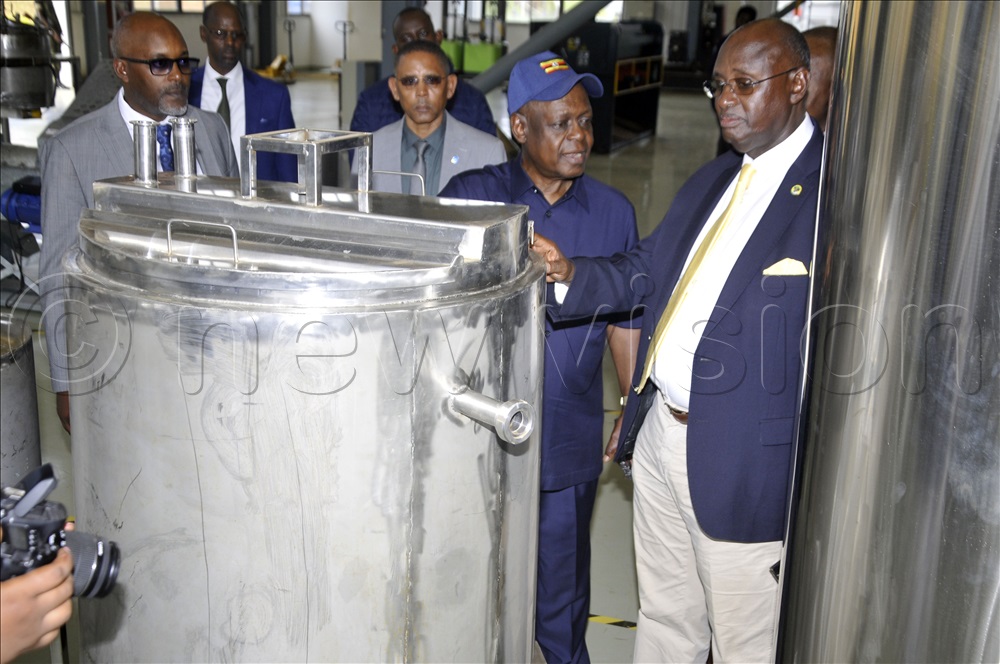Recent data from the 2024 State of Food Security and Nutrition (SOFI) shows that 34% of Uganda’s population remains undernourished, with more than 12 million people facing food insecurity.
The report adds that although the overall poverty levels in Uganda have reduced from 20.3% to 16.1%, many households still remain in extreme poverty.
Eastern and Northern Uganda still face a significant proportion at 22.9% and 26.8%, respectively underscoring an urgent need for transformative interventions in Uganda’s agrifood systems to drive sustainable growth and improve livelihoods.
Failure to address the above challenges, Uganda may not be able to eliminate poverty and ensure a hunger-free country by 2030 as per the targets of Sustainable Development Goals (SDGs)’s goals of ending hunger and poverty.
To help Uganda achieve its food systems transformation, Development partners have called on the government to address the current barriers to agri-food systems financing which include limited funding, realigning policies to reflect the realities of the economic situation, but also ensuring that there is adequate data that can be used to defend the financial support for the sector, explained David Wozemba, the country director of AGRA Uganda.

“The scale of investment required for agri-food systems transformation greatly exceeds the current finance needs yet national policies and framework often don’t adequately reflect the unique economic realities of the local communities leading to a disconnect between the high-level strategies and ground-level implementation,” Wozemba said.
Jean Marie Byakweli from the Food and Agriculture Organization added that although Uganda has been aligning her policies to internationals as a means of catalyzing investment financing for the sector, more focus should be on food safety.
According to Byakweli, food safety issues have already been highlighted in NDPIV.
“I think food safety matters have to be prioritized because it has implications on health and trade so as Uganda mobilizes resources for the agrifood systems sector, prioritizing food safety matters and ensuring that Uganda can avail safe food, the population and have quality food for international and regional markets will be important,” Byakweli said.
On her part, Agnes Kirabo, the executive director of the Food Rights Alliance, and representative of CSOs on Uganda’s Agrifood Systems committee called for the implementation of the food systems aspirations to appeal to the common person.
This should be done by showing the benefits in terms of employment creation, reducing hunger and poverty and also how these will improve household incomes.
“We have to get this whole conversation of agri-food systems transformation into practice, how will it address unemployment, manage hunger and show real-life interventions so that we can have a collective vision,” Kirabo said.
On how other development partners are supporting Uganda’s agri-food system, Pontiano Muhwezi from the International Fund for Agriculture Development highlighted the various interventions that his organization is implementing jointly with the Ministry of Agriculture Animal Industry and Fisheries.
These include support towards the development of foundation seed, availing funds through the private sector to increase agriculture financing, supporting the development of access roads to transport agricultural produce and mobilizing climate change adaptation funds.
Other initiatives include support towards the establishment of oil palm to help Uganda reduce imports of vegetable oils and related products among others.
Government appeal
Officiating at the opening sessions, the Minister of State for Agriculture Animal Industry and Fisheries commended the different initiatives of the development partners, adding that the agrifood system in Uganda requires collective investments through partnerships.
“We must work together to mobilize investments for agri-food systems, explore innovative and blended financing instruments and promote integrated systems-based financing that enhances productivity, nutrition, inclusion, climate resilience and environment sustainability,” Rwamirama said.
He also appealed to the private sector, especially the financing institutions to resize their financial packages so as to unlock the different opportunities along the agriculture value chains.
Rwamirama gave an example of the increasing production of cocoa, milk, tropical fruits, and coffee whose earnings have increased. For Coffee alone, Rwamirama said that it now fetches the country close to $2billion with limited value addition.
“I want to reiterate that this is a collective responsibility. We must therefore align our efforts to pull resources and create a robust action for the agri-food systems in Uganda,” he added.
Some of the initiatives that the government is pursuing to ensure the sector is financed include the capitalization of the Uganda Development Bank, Bank of Uganda through the Agriculture Credit Facility and apsp Uganda Development Corporation to support farmers with valued addition.
He added through institutions like the Uganda Industrial Research Institute, the government is providing skills needed for the sector and the country as a whole.
Target of the conference
According to Prof Alex Ariho from the African Agribusiness Incubation Network, the conference that was held under the theme ‘Catalyzing Innovative Financing and Investments in Uganda’s Agrifood Systems for Accelerated Socio Economic Transformation and Sustainable Development’ was aimed at finding ways through which food can be made available, accessible and affordable for the masses.
The meeting also explored Innovative Financing Mechanisms to Bridge Agrifood System Funding Gaps: Examining both domestic and international financing options and instruments that can effectively address the resource constraints hindering sustainable agrifood system transformation; Strengthening partnerships among government, private sector, development partners, and civil society to ensure aligned action towards the transformation of Uganda’s agrifood systems;
LEAD PHOTO CAPTION: Bright Rwamirama, the State Minister for Agriculture visiting Bella Wine stall at Uganda Agrifood System Investment and Financing Summit, Namanve June 24, 2025.





